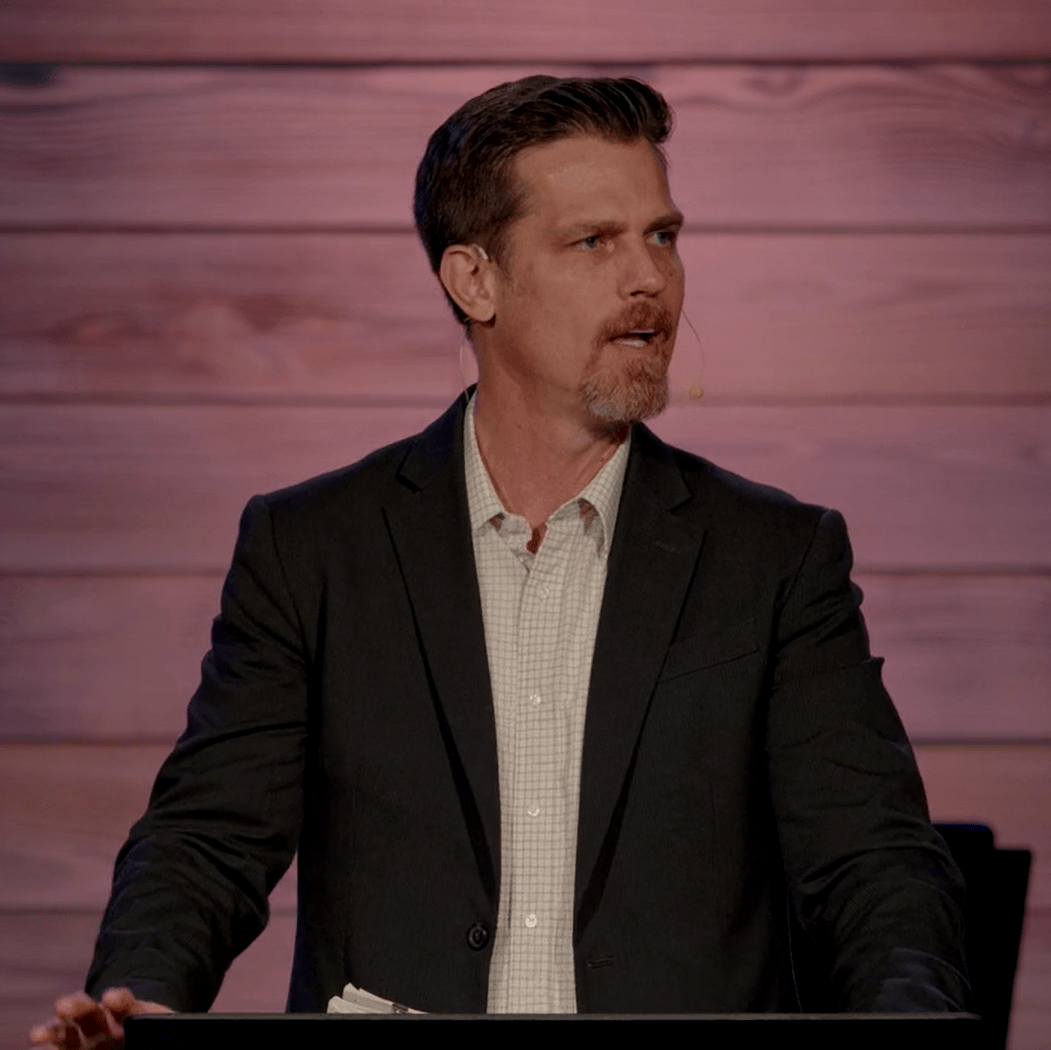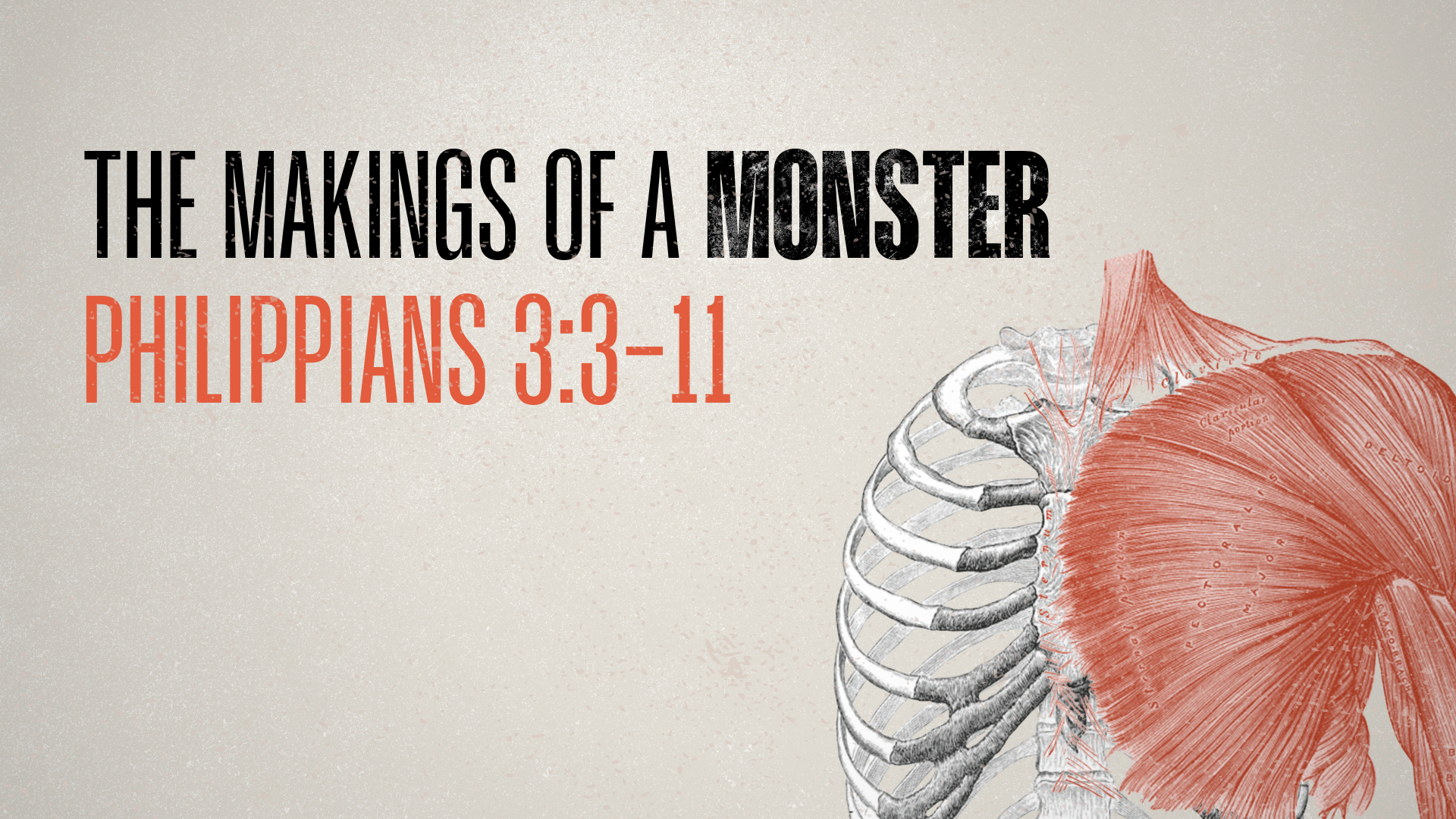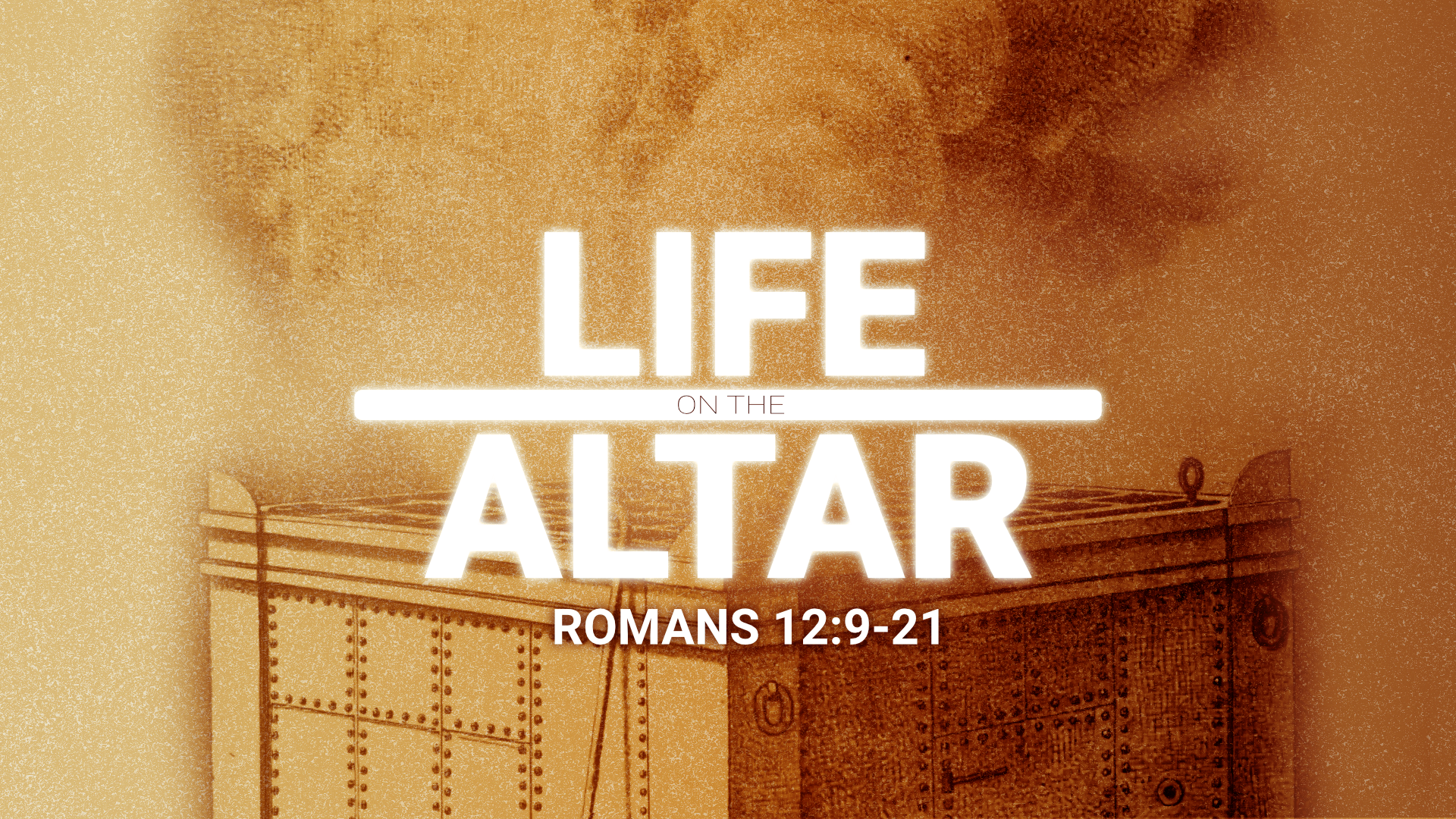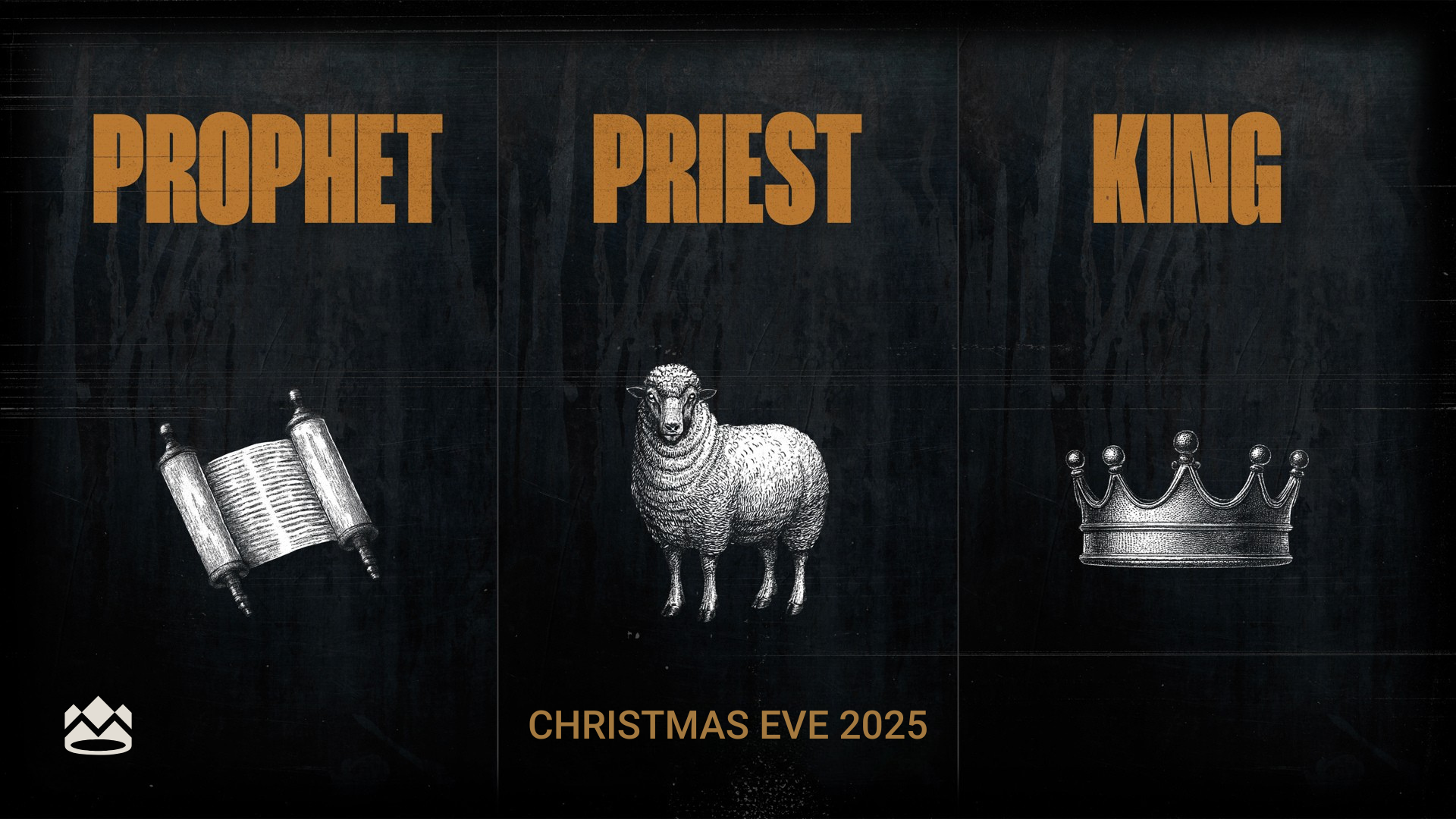Re-envisioning Vision: A Better Way to Understand חָזוֹן in Proverbs 29:18
Manuscript
“Re-envisioning Vision: A Better Way to Understand חָזוֹן in Proverbs 29:18”
Anthony Caffey, Ph.D. (Trinity Evangelical Divinity School)
Adjunct Professor, Moody Theological Seminary
Senior Pastor, Messiah Bible Church, San Antonio, Texas
“Where there is no vision, the people perish.” This oft-quoted King James rendering of Proverbs 29:18 has given license to many a pastor and Christian leader to dish out visionary leadership that their constituencies hanker after. This verse is often used to advocate for some idiosyncratic vision that leaders have conjured up in their own minds. But is that usage legitimate? A thoughtful member of said constituencies might reply in the words of Inigo Montoya from
The Princess Bride, “You keep using that word [‘vision’]. I do not think it means what you think it means.”
A well-meaning pastor using that term to “cast vision” in his church can hardly be blamed for quoting the KJV verbatim. If it does not mean what the pastor suggests it means, then what does it mean? More precisely, what does חָזוֹן (“vision”) mean? What does it mean in the context of Proverbs 29:18? And what does it mean in the broader context of the book of Proverbs? This paper seeks to answer those questions.
Context Clues
A complicating factor exists when interpreters approach the book of Proverbs—there is no consensus concerning the structure of this book. Are the Proverbs a loose collection of disconnected ideas and maxims, as Tremper Longman suggests? Or is there a discernible structure of ideas and correlations throughout the book, as Bruce Waltke suggests? Our approach to Proverbs 29:18 must begin by determining the broad structure (or lack thereof) of this book.
More precisely, Proverbs 29:18 is found in Collection V of Proverbs (25:1–29:27), the so-called Hezekiah Collection. Most scholars identify a clear structure in Collection I of Proverbs (1:1–9:18), and pastors preach accordingly. But consensus concerning structure or non-structure in Collections II–VII (10:1–31:31) is elusive. Most follow the reasoning of Longman that structure is impossible to discern. But both Duane Garrett and Waltke attempt to identify patterns of intentionality with structure in these sections of Proverbs (although the conclusions of the two authors differ).
From this author’s perspective, the book of Proverbs is intentionally and identifiably clumped in certain ways to allow the reader to see connections. Michael Fox uses the term “thematic clustering,” which I will use here. This is the case in Proverbs 29 where the “cluster” of issues and ideas in that section of the book circles around the concept of “righteousness” and the righteous person (צַדִּיק). And the immediate context of Proverbs 29:18 narrows in on the concept of discipline in childrearing.
Narrowing the Context (Proverbs 29:15–23)
The particular cluster of maxims that informs the meaning of Proverbs 29:18 is Proverbs 29:15–23. Here the broader concept of righteousness is localized in the Israelite home where the reader is told, “The rod and reproof give wisdom, but a child left to himself brings shame to his mother” (29:15, ESV). In other passages in Proverbs we see that a child can make his or her father glad; that is a recurring theme in the book. But here we find the opposite—and a parallel concept—bringing shame to one’s mother. How do parents prevent that from happening with their children? What should parents do to ensure their own future unashamed happiness? They should use the rod, and they should reprove. Children do not raise themselves. They need guidance.
The following verse connects this statement to the broader theme of righteousness. “When the wicked increase, transgression increases, but the righteous will look upon their downfall” (29:16). Continuing in the next two verses, the writer states, “Discipline your son, and he will give you rest; he will give delight to your heart. Where there is no prophetic vision [חָזוֹן] the people cast off restraint, but blessed is he who keeps the law” (29:17–18, ESV). So here, nestled in the midst of specific instructions regarding childrearing and discipline and righteousness, we find our oft-quoted passage.
What is the “Vision”?
The ESV’s translation of the Hebrew חָזוֹן here is “prophetic vision.” This combines the concept of “vision” found in the KJV and the NASB95 with the concept of “prophecy” found in the RSV (the NIV renders חָזוֹן as “revelation”). The LXX translates חָזוֹן with ἐξηγητής (“interpreter”), which complicates the matter. This makes the absence of the prophet, not the prophetic vision, the issue causing people to perish. But that is surely not what the Hebrew text is getting at.
The Vulgate is nearer the mark with cum prophetia defecerit (“when prophecy fails”). This is reflected in the Wycliffe Bible, which predates the KJV: “When prophecy faileth, the people shall be destroyed.” The Tyndale Bible (1530s), Coverdale Bible (1535), and Matthew Bible (1537) translate similarly with “prophecy.” The Geneva Bible (1560) and the Bishops’ Bible (1568) translate חָזוֹן with “vision.”
The ESV’s “prophetic vision” is more expansive and instructive than the “vision” of the KJV. What the ESV suggests with that rendering is that חָזוֹן means “communication from God” or “revelation.” This is more tightly connected to the etymology of חָזוֹן and its usage elsewhere in the Hebrew Scriptures. Cognates include the verb חָזָה meaning “to see, behold, prophesy,” the noun חֹזֶה meaning “seer,” and the noun מַחֲזֶה meaning “vision.”
Of the thirty-five occurrences of the word חָזוֹן in the Hebrew Scriptures, the ESV translates it “vision/visions” every time except for Proverbs 29:18. So why the expansion to “prophetic vision” in Proverbs? Probably to specify the connection between “vision” and divine revelation. The ESV clarifies for English readers that the author is not describing a self-generated vision. This is vision generated by God, as 1 Samuel 3:1 and other passages make clear: “Now the boy Samuel was ministering to the Lord in the presence of Eli. And the word of the Lord was rare in those days; there was no frequent vision [חָזוֹן].”
A modern-day pastor or leader might not object to this. In other words, they might argue that their own idiosyncratic “vision” is indeed God-generated, not self-generated. Certainly there are theological streams within evangelicalism that would countenance that. But this is where context clues and the ancient Hebrew practice of parallelism need to sober us.
Let’s take another run at verse 18 and feel the parallelism of the author:
Where there is no חָזוֹן the people cast off restraint,
but blessed is he who keeps the תּוֹרָה.
The חָזוֹן of verse 18a is parallel to the תּוֹרָה of verse 18b. References to תּוֹרָה are infrequent in Proverbs, but not insignificant. When Proverbs references תּוֹרָה in this way, there is no mistaking the referent. The תּוֹרָה is what God gave the Israelites through Moses. It is his revealed Word. And this is what God’s people delighted in. This תּוֹרָה is often on the tongues of parents. For example, “Hear, my son, your father’s instruction, and forsake not your mother’s תּוֹרָה” (Prov 1:8). Also Proverbs 3:1 states, “My son, do not forget my תּוֹרָה, but let your heart keep my commandments.” Again, Proverbs 28:7 states, “The one who keeps the law [תּוֹרָה] is a son with understanding, but a companion of gluttons shames his father.”
Feel the Parallelism; Abide the Context
The parallelism in Proverbs 29:18 is contrastive (i.e., antithetical). The presentation in 29:18a is clearly undesirable. Who wants people in their nation or in their household who cast off restraint? Meanwhile, 29:18b is desirable. We want to experience the state of “blessedness” or “happiness” (אֶשֶׁר) that is associated with keeping the law.
In terms of context, the verse immediately before Proverbs 29:18 is not a coincidence. “Discipline your son, and he will give you rest; he will give delight to your heart” (29:17). I concede that in Proverbs the context can often change on a dime. But in this case, verse 18 is intimately linked with verse 17. In fact, verses 15–18 are all seemingly packaged together to explain the importance of discipline—discipline with children and discipline within a nation.
In light of this parallelism and the context of Proverbs 29:18, we might paraphrase the author’s maxim as follows: “Where there is no prophetic vision from the Lord… where there is no תּוֹרָה from God… where there is no clarity about what God wants... where there is no God-directed, God-honoring vision… children run wild!” They “cast off restraint.” And all the parents in the room said, “AMEN.”
Let’s tease this context out a little further. The three words at the end of the ESV’s rendering of Proverbs 29:18a are “cast off restraint.” Those three words are a translation of only one word in Hebrew, פָּרַע. In the Qal active stem it means, “to be out of control” or “run wild.” The word is used in Exodus 32:25 to describe the incident of the golden calf when the Israelites were out of control morally (ESV: “the people had broken loose”). But in Proverbs 29:18, פָּרַע is in the Niphal (passive/reflexive) stem. So more precisely, what is being said is as follows: “Where there is no חָזוֹן, the people are unrestrained.” They are allowed to run wild and be out of control. This has broad implications for many different settings as many individual proverbs do. But contextually linked to the cluster (especially verse 17), this statement is more precisely communicating something about parenting—or shall we say, lack of parenting.
Paralleling חָזוֹן and תּוֹרָה
Proverbs 29:18 is not the only place in the OT where חָזוֹן and תּוֹרָה appear as parallel terms. In Ezekiel 7:26 the prophet writes, “Disaster comes upon disaster; rumor follows rumor. They seek a חָזוֹן from the prophet, while the תּוֹרָה perishes from the priest and counsel from the elders.” This act of judgment—the removal of law and revelation—is an outworking of the disaster brought on by the day of the wrath of the Lord (7:19). This differs from Proverbs 29:18 where the issue seems to be intentional rejection of the revealed Word from the Lord instead of the punitive removal of it. This is regardless of how one takes the בְּ preposition at the beginning of Proverbs 29:18. Is it causal? “Because there is no חָזוֹן …” Or is it temporal? “When there is no חָזוֹן …” Either way, the judgment of “people running wild” is self-inflicted not an act of divine retribution.
Similarly, Lamentations 2:9 reads as follows: “[Jerusalem’s] gates have sunk into the ground; he has ruined and broken her bars; her king and princes are among the nations; the תּוֹרָה is no more, and her prophets find no חָזוֹן from the Lord.” Unlike Ezekiel 7:26, the removal of תּוֹרָה and חָזוֹן in the community is not clearly punitive. Is their removal part of God’s judgment? Or the result of it? It’s not clear from the text. But, again, destruction and disaster are correlated with the removal of God’s revelation—just as in Proverbs 29:18.
Back to the Cluster Context (Proverbs 29:15–23)
This thematic clustering around discipline continues in verse 19. “By mere words a servant is not disciplined, for though he understands, he will not respond” (29:19). One implicit theme running through Proverbs is that you had better discipline yourself, otherwise there are outside forces in this world that will discipline you. But it’s better if you initiate that yourself. In verse 20, this self-discipline applies to a person’s speech, “Do you see a man who is hasty in his words? There is more hope for a fool than for him” (29:20).
In verse 21, the passage returns to discipline among servants. “Whoever pampers his servant from childhood will in the end find him his heir” (29:21). That would have been viewed as a negative thing in ancient society—a servant becoming an heir. This doesn’t translate well into our modern-day context. But the transferable principle is something like this: “You need to use authority firmly and appropriately with your subordinates; otherwise they will overtake you.”
Finally, the author concludes this cluster by writing, “A man of wrath stirs up strife, and one given to anger causes much transgression. One’s pride will bring him low, but he who is lowly in spirit will obtain honor” (29:22–23). So, discipline yourself to avoid strife. Discipline yourself regarding anger. And discipline yourself regarding pride. Like so many of the proverbs in this book, concepts are held in tension. Leaders and parents need to be firm and authoritative. But they also need to dispense with the wrath that stirs up strife, the anger that causes transgression, and pride. They need to discipline others for the sake of righteousness; they also need to discipline themselves.
Conclusion
So what shall we conclude about the proverbial “vision” of this passage? What does חָזוֹן mean in the context of Proverbs 29:18 and the broader context of Proverbs? Well, חָזוֹן should be tightly correlated with the parallel term תּוֹרָה. This has to do with revealed truth from God and his Word. The “vision” that should be cast over God’s people has to do with backward-looking revealed truth not forward-looking “vision casting,” which is often a thinly veiled pursuit of personal wish-fulfillment.
Fox asserts that חָזוֹן in Proverbs 29:18 “does not refer to a particular historical period, but to any time or situation in which prophetic oracles are not forthcoming or are not used.” That is true from the vantage point of the writer of Proverbs. That writer lived in a day when prophetic activity was still active. Nevertheless, I would still argue that the applicational thrust of the statement in 29:18 involves Israelites looking backward more than looking forward or sideways for prophetic oracles in their time. And applicationally, from our interpretational vantage point, the emphasis for pastors and leaders should be on oracles revealed, not oracles forthcoming.
As Tim Challies writes, “This verse says nothing of the importance of having a church that is led by vision or a visionary. Ironically, this verse should underscore the importance of honoring God’s revelation, and warn those who would water it down by sloppy or deliberate misuse.” If I could state it even more crassly in the context of the local church—churches do not need more idiosyncratic vision casting; they need more Bible preaching. Ironically, the Bishops’ Bible, which predates the KJV, captures the applicational thrust of this in a paraphrastic marginal note: “When the worde of God is not preached, the people perishe.”
But we haven’t gone far enough. Because the revelation that is needed is contextualized in the family unit. The prophetic vision of God’s Word is extremely valuable in the life of every God-fearer. But the stress of this literary unit is on childrearing. So the application is not just for pastors and leaders; it is for parents. The best way to prepare your children to move forward in life is to fix their eyes backward on the revealed truth of God’s תּוֹרָה!
In this way, the message of Proverbs 29 is not that far removed from Deuteronomy 6:6: “And these words that I command you today shall be on your heart. You shall teach them diligently to your children, and shall talk of them when you sit in your house, and when you walk by the way, and when you lie down, and when you rise.” If there is such a thing as “forward-looking vision” derived from Proverbs 29:18, it is not self-generated wish-fulfillment or privatized special revelation. Instead it is the revealed special revelation of God’s written Word that is continually pressed into children’s hearts as they grow up in the nurture and admonition of the Lord.
Bibliography
Ansberry, Christopher B. Proverbs: The (Trans)formation of Character in Accord with Wisdom and Virtue. Edited by Daniel I. Block. ZECOT. Grand Rapids: Zondervan, 2024.
Bridges, Charles. Proverbs. Crossway Classic Commentaries. Wheaton: Crossway Books, 2001.
Caffey, Tony. “The Rightness of Righteousness.” Messiah Bible Church. November 17, 2024.
https://www.messiahbible.org/proverbs-29-1-27-the-rightness-of-righteousness.
Challies, Tim. “Where There Is No Vision… (Proverbs 29:18).” Challies, March 9, 2005.
https://www.challies.com/articles/where-there-is-no-vision-proverbs-2918/.
Croteau, David A., and Gary E. Yates. Urban Legends of the Old Testament: 40 Misconceptions. Nashville: B&H Publishing, 2019.
Fink, David C., and Timothy George, eds. Proverbs, Ecclesiastes, Song of Songs: Old Testament. Vol. IX. RCS. Downers Grove: IVP Academic, 2023.
Fox, Michael V. Proverbs 10–31: A New Translation with Introduction and Commentary. Vol. 18B. AYB. New Haven: Yale University Press, 2009.
Garrett, Duane. Proverbs, Ecclesiastes, Song of Songs. NAC. Nashville: Broadman & Holman, 1993.
Kaiser, Walter C., Jr., et al. Hard Sayings of the Bible. Downers Grove: InterVarsity, 1996.
Koehler, Ludwig, and Walter Baumgartner. HALOT. Revised by Walter Baumgartner and Johann Jakob Stamm. 5 vols. Leiden: Brill, 1994–2000.
Kidner, Derek. Proverbs: An Introduction and Commentary. TOTC. Downers Grove: InterVarsity Press, 1964.
Longman, Tremper III. Proverbs. BCOTWP. Grand Rapids: Baker Academic, 2006.
Murphy, Rowland E. Proverbs. Vol. 22. WBC. Dallas: Thomas Nelson, 1998.
Naudé, Jackie A. “חָזָה (ḥāzâ).” In NIDOTTE, edited by Willem VanGemeren, vol. 2, 55–58. Grand Rapids: Zondervan, 1997.
O’Dowd, Ryan Patrick. “Proverbs.” In Psalms–Song of Solomon, edited by Iain M. Duguid, James M. Hamilton Jr., and Jay Sklar. ESVEC. Wheaton: Crossway, 2022.
Ross, Allen P. “Proverbs.” In The Expositor’s Bible Commentary: Proverbs–Isaiah (Revised Edition), edited by Tremper Longman III and David E. Garland, vol. 6, 43–259. Grand Rapids: Zondervan, 2008.
Schultz, Richard L. “Unity or Diversity in Wisdom Theology? A Canonical and Covenantal Perspective.” Tyndale Bulletin 48, no. 2 (1997): 271–304.
Swanson, James A. DBL Hebrew. Electronic ed. Oak Harbor, WA: Logos Research Systems, 1997.
Taylor, Richard A. “פָּרַע (pāraʿ II).” In NIDOTTE, edited by Willem VanGemeren, vol. 3, 690. Grand Rapids: Zondervan, 1997.
Waltke, Bruce K. The Book of Proverbs, Chapters 1–15. NICOT. Grand Rapids: Eerdmans, 2004.
____________. The Book of Proverbs, Chapters 15–31. NICOT. Grand Rapids: Eerdmans, 2005.
Wright, J. Robert, ed. Proverbs, Ecclesiastes, Song of Solomon. ACCS. Downers Grove: IVP, 2005.





